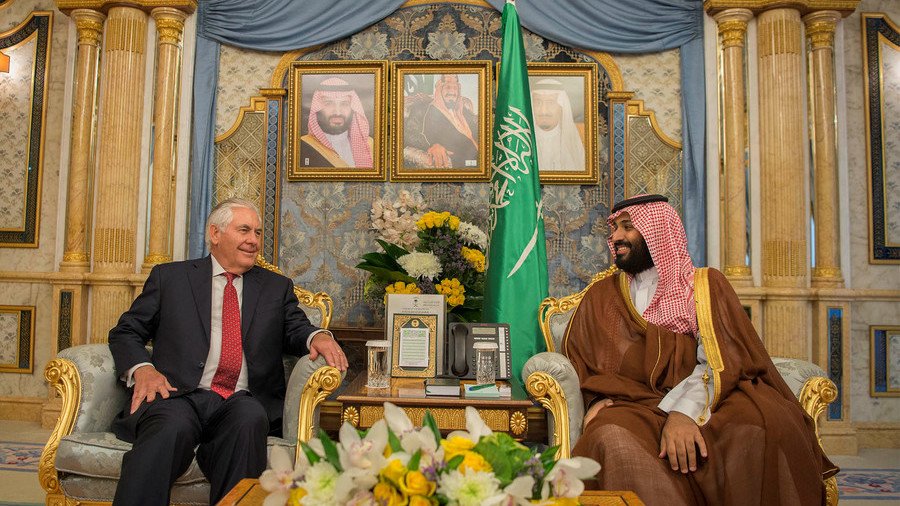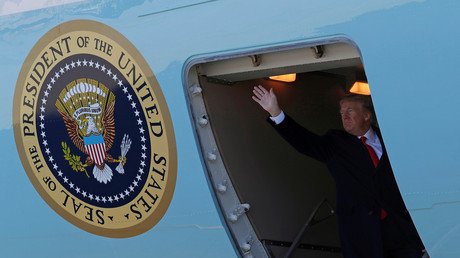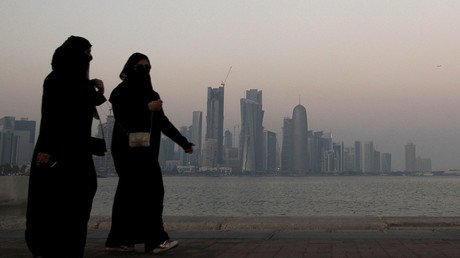Tillerson ‘stopped Qatar invasion’ by Saudis & UAE, may have been fired for it – The Intercept

Rex Tillerson derailed a blitzkrieg plan by Saudi Arabia and the UAE to target Qatar and may have been fired as secretary of state for his actions, a report by The Intercept says.
The firing by Twitter of Secretary of State Tillerson in March was one of the more peculiar moments of Donald Trump’s presidency. While plenty of pundits claimed the ex-ExxonMobil CEO’s demise as a cabinet official came because he was too critical of Russia for Trump’s taste, Saudi Arabia and the United Arab Emirates were the countries that actually lobbied for Tillerson’s departure.
The enmity of the Arab monarchies may have stemmed from Tillerson’s effort to block a military intervention against Qatar, which two powerful princes in Saudi Arabia and the UAE were preparing as a means to end a diplomatic rift in the Arab Peninsula, a report by The Intercept said on Wednesday. The story is based on anonymous sources, a current member of the US intelligence community, two former US State Department officials and two individuals familiar with matters regarding the UAE and Saudi royal families.
The ongoing diplomatic crisis in the Arab world positioned Qatar in opposition to Saudi Arabia, the UAE, Bahrain and Egypt, which declared a trade blockade of the gas-rich country. Qatar for its part was supported by Iran, the regional arch-enemy of Saudi Arabia. Tillerson was involved in an extensive diplomatic effort to de-escalate the conflict since June 2017, when it erupted.
According to the Intercept’s sources, Saudi Arabia and the UAE were prepared to end the stand-off with a lighting military operation against Qatar. It would have entailed Saudi ground troops, supported by the UAE in the air, circumventing a US air base located near the Qatari capital Doha and seizing the city, putting the two nations in a position to enforce their collective will on the Qatari government.
The plan was discovered by the Qatari intelligence sometime in the early summer of 2017 and confirmed several months later by US and UK intelligence. Qatar reportedly informed Tillerson of the planned invasion, and the US diplomat unleashed a flurry of phone calls in an effort to prevent it.
He also got US Secretary of Defense James Mattis involved, asking him to contact his Saudi and Emirati counterparts to warn about the danger posed to the 10,000 US troops deployed in Qatar. The Gulf nation houses the US Central Command headquarters.
Tillerson’s effort succeeded in preventing the incursion, the report says. But it left Mohammed bin Zayed, the crown prince of Abu Dhabi and one of the most powerful people in the UAE, enraged. He and Saudi Arabia’s Mohammed bin Salman, now crown prince and de facto ruler of the country in lieu of his father King Salman, were the driving forces behind the planned military solution. The two crown princes began lobbying the White House to sack Tillerson in the fall of 2017, according to the report.
The investigative website suggests that the motivation behind the invasion plan may have been financial, in addition to political. At the time Saudi Arabia was bracing itself for a period of low oil prices and burning its reserves fast. If the troops successfully seized Doha, “they would potentially have been able to gain access to the country’s $320 billion sovereign wealth fund,” the report said. Months after the plan failed, Mohammed bin Salman launched his “anti-corruption campaign,” squeezing dozens of his relatives for allegedly stolen private assets worth billions.
Like this story? Share it with a friend!
















